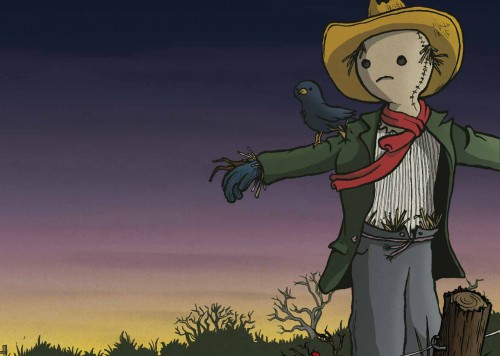Pupils should take time to reflect on the contrast between festive excess and continuing crises in other countries, suggests Pie Corbett
Poetry lends itself to Christmas. All schools celebrate the season one way or another with parties, shows, performances and songs. Christmas poems should be performed in school assemblies or on special occasions, such as Christmas shows or performances. You might choose to display poems:
• on star shapes;
• on cut out shapes of Christmas trees;
• beside tissue paper church window patterns.
At the start of a session, grab everyone’s attention by using creative games to establish an imaginative mood:
• Christmas is a time for gifts. Make a list of special gifts that you would like to give to your friends and family. What would you give to the world?
• Invent bizarre gifts that Santa might have in his magical sack using this pattern so that you show what they are made of:
I would give my best friend –
• A car made of luscious leaves,
• A doll made of flimsy flames,
• A computer made of dusty dominoes,
• A yoyo made of cute Catherine wheels,
• A pair of skates made of frosted thimbles,
• A Gameboy made of clumsy clouds.
• Write a diary entry for an elf who is helping Santa.
• Interview Rudolph about his job for the local newspaper.
• Create an advert for elves to help Santa.

In Winter fields
a scarecrow sings
the hopeful tunes
of lonely kings.
His empty heart
is thin and cold;
his cruel rags
are worn and old.
In bed at night
we listen for
padded footsteps
at the door.
In our homes
we sing out clear
warm words of joy
and know no fear.
In other fields
and different lands
living scarecrows
reach out hands.
They live beneath
the sun’s cruel rays.
They do not know
of Christmas days.
I wrote Scarecrow Christmas many years ago when a friend of mine had been to Ethiopia during a famine and returned with photographs showing the terrible effects. The children looked like scarecrows – and it was in such contrast to the wealth of the season in our country.
The poem could be set to simple music, sung or performed as a rap. If you turn it into a song then the children might find it helpful to write some sort of rhythmic chorus.
Ask the children to discuss the poem and feedback their ideas about what it means. What was the poet trying to say about Christmas time? How does the poem work?
Dawn - Christmas arrives;
Gran snoozes on the sofa
Sun peeks through dark clouds.
Church bells ring out clear;
Presents bulge with surprises.
Crackers detonate.
Carols in King Street;
crisp frost glitters underfoot –
a pavement of stars
Silver tinsel glints –
Candles glow in the darkness.
The TV mumbles.
A lone star glistens
above the bleak city streets;
Foxes raid dustbins.
The haiku have a simple pattern which can be worked out by counting the syllables – 5/ 7/ 5. A haiku is rather like a simple snapshot that attempts to paint a picture of a moment in time by describing an image. Get the children to search through poetry anthologies such as The Works, which Macmillan publish in a series of eight collections, to find other haiku.
Try getting the children to write haiku. Begin by reading and discussing about 20 or so. Which do they enjoy – what picture does it create – how did the writer feel?
Now brainstorm on a board or flip chart all the key things that the children associate with Christmas – this could be listed by the senses – what do you typically see, hear, smell, taste, touch?
For each haiku take three of the images and write a simple line for each – the first using 5 syllables, then 7 and finally 5. Take care with the words so that each one is worth having.
The finished poems could be copied up onto leaf shapes and displayed on a haiku poet tree.
More poems can be found in Evidence of Dragons by Pie Corbett, Macmillan Children’s Books (Newly published in July 2011).
Share these poems with your children as a PowerPoint on the whiteboard. Register for the free resources section of the Teach Primary website (teachprimary.com) and search for ‘Winter’s tale’.
Or view more of our Pie Corbett resources, please click here
Pie Corbett is a writer, poet and educational consultant. A former headteacher and Ofsted Inspector, he’s written and edited over 250 books and runs training for LAs and schools.
Why Boarding School Fiction Feels Comfortably Familiar
Ace-Classroom-Support
Make World Book Day Extra Special This Year
Ace-English
KS2 Lesson plan: China and Buddism
Ace-English
